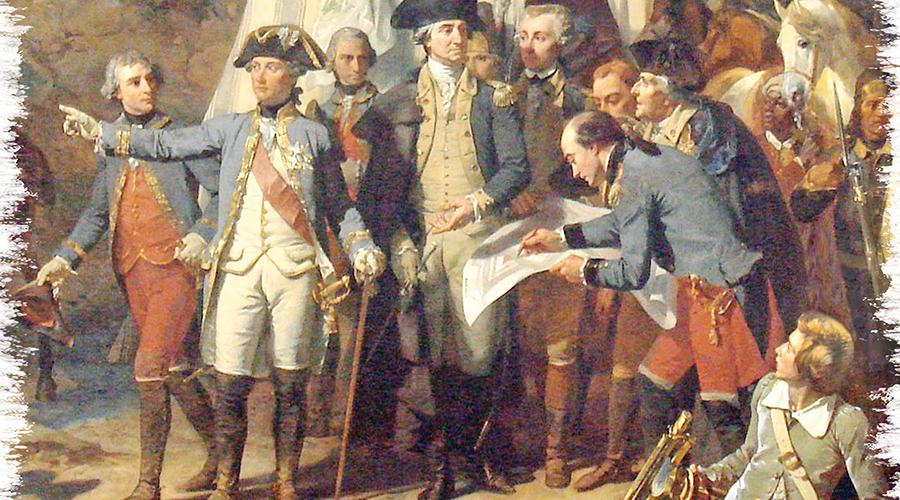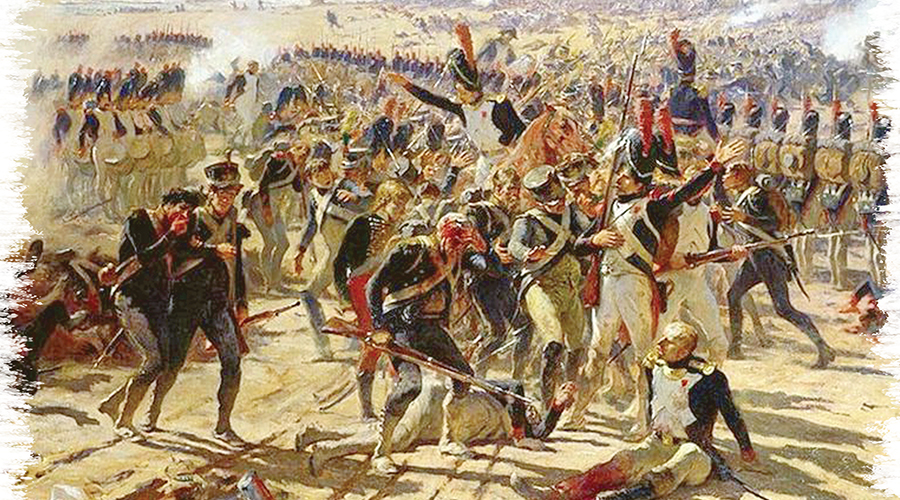THE ORCHARD ON FIRE
- 20 Apr - 26 Apr, 2024

The London Board-room rose before his mind. He imagined the portentous gravity of Hemmings; his face and voice and manner conveying the impression that he alone could save the situation; the six directors, all men of commonsense and certainly humane, seated behind large turret-shaped inkpots; the concern and irritation in their voices, asking how it could have happened; their comments: "An awful thing!"
"I suppose Pippin is doing the best he can!"
"Wire him on no account to leave the mine idle!"
"Poor devils!" "A fund? Of course, what ought we to give?" He had a strong conviction that nothing of all this would disturb the commonsense with which they would go home and eat their mutton. A good thing too; the less it was taken to heart the better! But Scorrier felt angry. The fight was so unfair! A fellow all nerves--with not a soul to help him! Well, it was his own lookout! He had chosen to centre it all in himself, to make himself its very soul. If he gave way now, the ship must go down! By a thin thread, Scorrier's heroworship still held. 'Man against nature,' he thought,
'I back the man.'
The struggle, in which he was so powerless to give aid, became intensely personal to him, as if he had engaged his own good faith therein. The next day they went down again to the pit-head; and Scorrier himself descended. The fumes had almost cleared, but there were some places which would never be reached. At the end of the day all but four bodies had been recovered. "In the day o' judgment," a miner said, "they four'll come out of here." Those unclaimed bodies haunted Scorrier. He came on sentences of writing, where men waiting to be suffocated had written down their feelings. In one place, the hour, the word "Sleepy," and a signature. In another, "A. F. done for." When he came up at last Pippin was still waiting, pocket-book in hand; they again departed at a furious pace.
Two days later Scorrier, visiting the shaft, found its neighbourhood deserted – not a living thing of any sort was there except one Chinaman poking his stick into the rubbish. Pippin was away down the coast engaging an engineer; and on his return, Scorrier had not the heart to tell him of the desertion. He was spared the effort, for Pippin said: "Don't be afraid – you've got bad news? The men have gone on strike." Scorrier sighed. "Lock, stock, and barrel"
"I thought so, see what I have here!" He put before Scorrier a telegram: "At all costs keep working – fatal to stop – manage this somehow – HEMMINGS." Breathing quickly, he added: "As if I didn't know!’ Manage this somehow' – a little hard!" "What's to be done?" asked Scorrier. "You see I am commanded!" Pippin answered bitterly. "And they're quite right; we must keep working – our contracts! Now I'm down – not a soul will spare me!" The miners' meeting was held the following day on the outskirts of the town. Pippin had cleared the place to make a public recreation-ground – a sort of feather in the company's cap; it was now to be the spot whereon should be decided the question of the company's life or death. The sky to the west was crossed by a single line of cloud like a bar of beaten gold; tree shadows crept towards the groups of men; the evening savour, that strong fragrance of the forest, sweetened the air. The miners stood all round amongst the burnt tree-stumps, cowed and sullen. They looked incapable of movement or expression. It was this dumb paralysis that frightened Scorrier.
He watched Pippin speaking from his phaeton, the butt of all those sullen, restless eyes. Would he last out? Would the wires hold? It was like the finish of a race. He caught a baffled look on Pippin's face, as if he despaired of piercing that terrible paralysis. The men's eyes had begun to wander. 'He's lost his hold,' thought Scorrier; 'it's all up!' A miner close beside him muttered: "Look out!" Pippin was leaning forward, his voice had risen, and the words fell like a whiplash on the faces of the crowd: "You shan't throw me over; do you think I'll give up all I've done for you? I'll make you the first power in the colony! Are you turning tail at the first shot? You're a set of cowards, my lads!" Each man round Scorrier was listening with a different motion of the hands--one rubbed them, one clenched them, another moved his closed fist, as if stabbing someone in the back. A grisly-bearded, beetle-browed, twinkling-eyed old Cornishman muttered: "A'hm not troublin' about that." It seemed almost as if Pippin's object was to get the men to kill him; they had gathered closer, crouching for a rush.

Suddenly Pippin's voice dropped to a whisper: "I'm disgraced Men, are you going back on me?" The old miner next Scorrier called out suddenly: "Anny that's Cornishmen here to stand by the superintendent?" A group drew together, and with murmurs and gesticulation the meeting broke up. In the evening a deputation came to visit Pippin; and all night long their voices and the superintendent's footsteps could be heard. In the morning, Pippin went early to the mine. Before supper the deputation came again; and again Scorrier had to listen hour after hour to the sound of voices and footsteps till he fell asleep. Just before dawn he was awakened by a light. Pippin stood at his bedside. "The men go down to-morrow," he said: "What did I tell you? Carry me home on my shield, eh?" In a week the mine was in full work. V Two years later, Scorrier heard once more of Pippin. A note from Hemmings reached him asking if he could make it convenient to attend their Board meeting the following Thursday. He arrived rather before the appointed time. The secretary received him, and, in answer to inquiry, said: "Thank you, we are doing well – between ourselves, we are doing very well."
"And Pippin?" The secretary frowned. "Ah, Pippin! We asked you to come on his account. Pippin is giving us a lot of trouble. We have not had a single line from him for just two years!" He spoke with such a sense of personal grievance that Scorrier felt quite sorry for him. "Not a single line," said Hemmings, "since that explosion – you were there at the time,
I remember! It makes it very awkward; I call it personal to me." "But how – " Scorrier began. "We get – telegrams. He writes to no one, not even to his family. And why? Just tell me why? We hear of him; he's a great nob out there. Nothing's done in the colony without his finger being in the pie. He turned out the last Government because they wouldn't grant us an extension for our railway – shows he can't be a fool. Besides, look at our balance sheet!" It turned out that the question on which Scorrier's opinion was desired was, whether Hemmings should be sent out to see what was the matter with the superintendent. During the discussion which ensued, he was an unwilling listener to strictures on Pippin's silence. "The explosion,"
he muttered at last, "a very trying time!"
Mr Booker pounced on him. "A very trying time! So it was – to all of us. But what excuse is that – now, Mr Scorrier, what excuse is that?" Scorrier was obliged to admit that it was none. "Business is business – eh, what?" Scorrier, gazing round that neat Board-room, nodded. A deaf director, who had not spoken for some months, said with sudden fierceness: "It's disgraceful!"
He was obviously letting off the fume of long-unuttered disapprovals. One perfectly neat, benevolent old fellow, however, who had kept his hat on, and had a single vice – that of coming to the Boardroom with a brown paper parcel tied up with string – murmured: "We must make all allowances," and started an anecdote about his youth. He was gently called to order by his secretary.

Scorrier was asked for his opinion. He looked at Hemmings. "My importance is concerned," was written all over the secretary's face. Moved by an impulse of loyalty to Pippin, Scorrier answered, as if it were all settled: "Well, let me know when you are starting, Hemmings – I should like the trip myself." As he was going out, the chairman, old Jolyon Forsyte, with a grave, twinkling look at Hemmings, took him aside. "Glad to hear you say that about going too, Mr Scorrier; we must be careful – Pippin's such a good fellow, and so sensitive; and our friend there – a bit heavy in the hand, um?" Scorrier did in fact go out with Hemmings. The secretary was sea-sick, and his prostration dignified but noisy, remained a memory for ever; it was sonorous and fine – the prostration of superiority; and the way in which he spoke of it, taking casual acquaintances into the caves of his experience, was truly interesting. Pippin came down to the capital to escort them, provided for their comforts as if they had been royalty, and had a special train to take them to the mines.
He was a little stouter, brighter of colour, greyer of beard, more nervous perhaps in voice and breathing. His manner to Hemmings was full of flattering courtesy; but his sly, ironical glances played on the secretary's armour like a fountain on a hippopotamus. To Scorrier, however, he could not show enough affection: The first evening, when Hemmings had gone to his room, he jumped up like a boy out of school. "So I'm going to get a wigging," he said; "I suppose I deserve it; but if you knew – if you only knew...! Out here they've nicknamed me 'the King' – they say I rule the colony. It's I that I can't rule"; and with a sudden burst of passion such as Scorrier had never seen in him: "Why did they send this man here? What can he know about the things that I've been through?" In a moment he calmed down again. "There! This is very stupid; worrying you like this!" and with a long, kind look into Scorrier's face, he hustled him off to bed. Pippin did not break out again, though fire seemed to smoulder behind the bars of his courteous irony. Intuition of danger had evidently smitten Hemmings, for he made no allusion to the object of his visit.
There were moments when Scorrier's common-sense sided with Hemmings – these were moments when the secretary was not present. 'After all,' he told himself, 'it's a little thing to ask – one letter a month.
I never heard of such a case.' It was wonderful indeed how they stood it! It showed how much they valued Pippin! What was the matter with him? What was the nature of his trouble? One glimpse Scorrier had when even Hemmings, as he phrased it, received "quite a turn." It was during a drive back from the most outlying of the company's trial mines, eight miles through the forest. The track led through a belt of trees blackened by a forest fire. Pippin was driving.
The secretary seated beside him wore an expression of faint alarm, such as Pippin's driving was warranted to evoke from almost any face. The sky had darkened strangely, but pale streaks of light, coming from one knew not where, filtered through the trees. No breath was stirring; the wheels and horses' hoofs made no sound on the deep fern mould. All around, the burnt tree-trunks, leafless and jagged, rose like withered giants, the passages between them were black, the sky black, and black the silence. No one spoke, and literally the only sound was Pippin's breathing. What was it that was so terrifying? Scorrier had a feeling of entombment; that nobody could help him; the feeling of being face to face with Nature; a sensation as if all the comfort and security of words and rules had dropped away from him. And-nothing happened. They reached home and dined.
to be continued...
COMMENTS